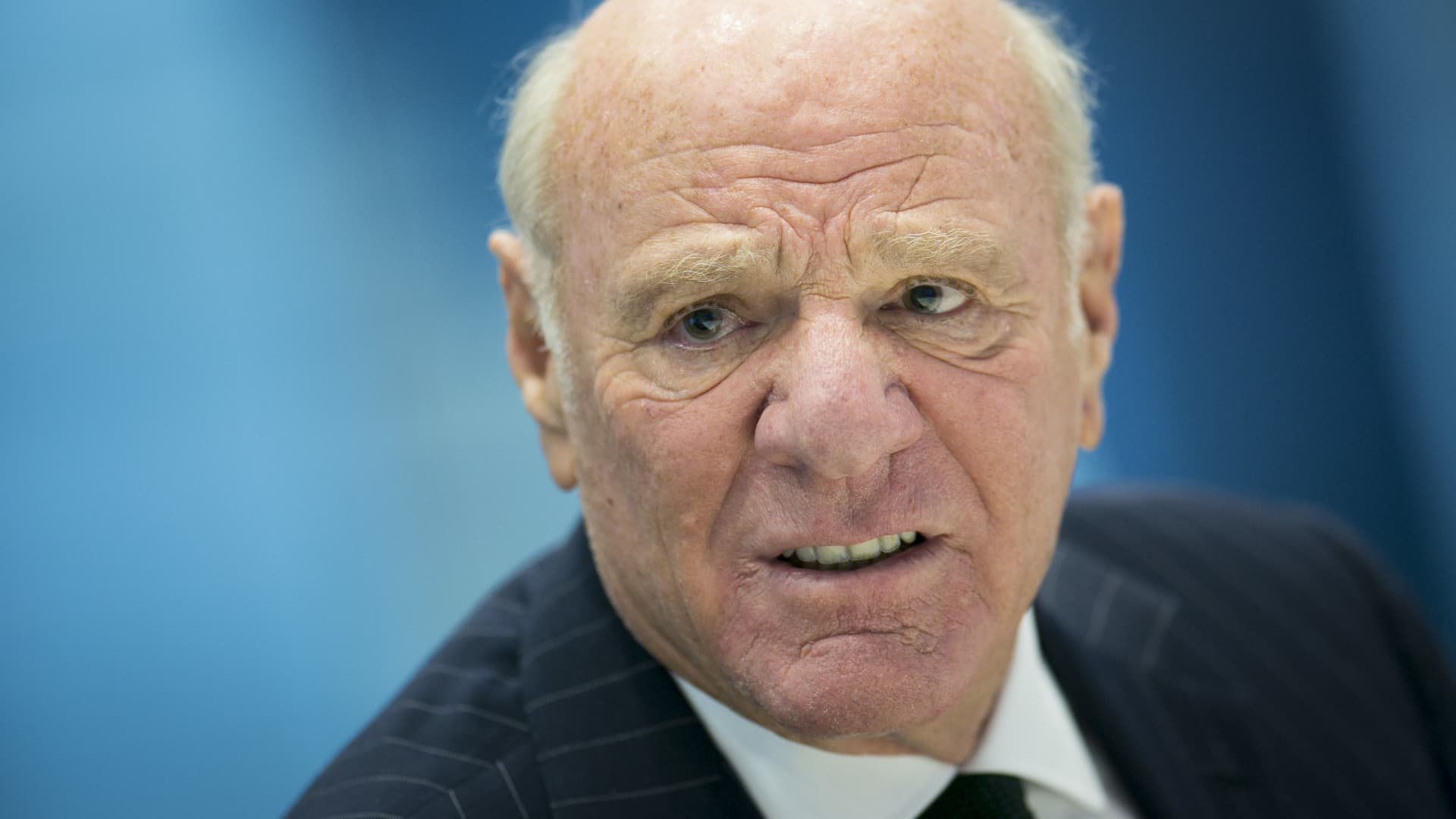Barry Diller, chairman and chief executive officer of IAC/InterActiveCorp.
Scott Eells | Bloomberg | Getty Images
Failing to resolve the dual strikes of the writers’ and screen actors guilds in Hollywood will lead to “devastating effects if it is not settled soon,” IAC and Expedia Chairman Barry Diller said in an interview on CBS’ “Face the Nation” on Sunday.
Diller, a former Paramount Pictures CEO, predicted a domino effect should the dual strikes not resolve quickly.
“These conditions will potentially produce an absolute collapse of an entire industry,” he said.
If the studio executives and guilds can’t reach an agreement for several more months, Diller predicted, there will be fewer programs for consumers to watch, which will lead to canceled streaming subscriptions and reduced revenue for the entertainment industry. That means that by the time the strikes are settled, there won’t be enough money to ramp programs back up.
Settling soon seems unlikely, however, Diller said, since “there’s no trust between the parties.”
He pointed to “existential issues” including the rise of artificial intelligence, on which the guilds have said they want input on how it will be used, as well as pay disparities between the top and bottom earners in the industry.
Diller said to ease that disparity, top studio executives and top-paid actors could take a 25% pay cut as a “good-faith measure” to try to “narrow the difference between those that get highly paid and those that don’t.”
He also suggested there should be a Sept. 1 “settlement deadline.”
Diller specifically addressed AI in the interview, which he called “overhyped to death” in terms of the impact it will have on writers’ and screen actors’ jobs.
“Writers will get assisted, not replaced,” Diller said. “Most of these actual performing crafts, I don’t think they are in danger of artificial intelligence.”
Diller is more concerned about the impact of AI on the publishing industry, foreshadowing a potential lawsuit with a group of “leading publishers,” though he declined to go into specifics, including when a complaint could be filed.
Diller said leading AI companies Google and Microsoft “want to find a solution for publishers.”
But, he added, “The problem is they also say that the fair use doctrine of the copyright law allows them to suck up all this stuff. We on the publishing side do not agree with that.”
Microsoft declined to comment and Google did not immediately respond to a request for comment.
AI companies must come up with a fair business model before ingesting publishers’ copyrighted work, Diller said. He said the situation is similar to publishers’ decision to offer free access to material on the internet during its early days, while relying on ad revenue.
“It took 15 years to get back on paywalls that protected publishers,” Diller said.
“I think litigation will hopefully lead to sensible legislation here,” he said. “Unless you protect copyright, all is lost.”
WATCH: Some Hollywood executives reportedly say they will let striking writers ‘go broke’

